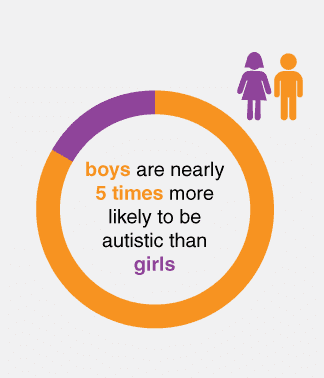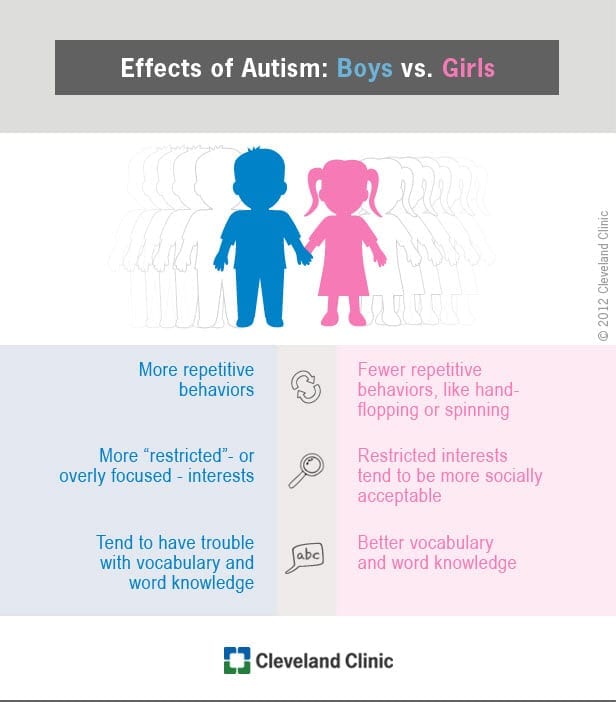For years, research has proven to us that early diagnosis and interventions for children with Autism Spectrum Disorder (ASD) can have major long-term positive effects on a child’s symptoms and later skills. Interventions, such as family training, speech therapy, physical therapy, hearing impairment services, and nutrition services, can all have a significant impact on a child’s ability to learn new skills and overcome challenges.
Before preschool age, up to 2 or 3 years of age, a child’s brain is still undergoing development and formation. Their young brains are referred to as having “plasticity” or being “plastic,” a term which means that the child’s brain is more flexible and able to undergo biological changes in response to experiences. For this reason, interventions at a young age have a better chance of being effective in the long term, helping to support healthy development and increase success in school and later in life. Autism-appropriate education and support at early key developmental stages are more likely to help children gain essential social skills. Additionally, a diagnosis can help to reduce self-criticism and foster a more positive sense of identity for the children who have ASD and have more time to grapple with their new understanding of self.
Interventions at a young age have a better chance of being effective in the long term, helping to support healthy development and increase success in school and later in life.
Importantly, early intervention can also help family members and parents to be better equipped. An early diagnosis can benefit parent-child relationships as parents of children with ASD can feel better prepared for the road ahead and learn early on how to help their children mentally, emotionally, and physically. A timely identification of ASD can also help families to identify the child’s needs and the types of interventions which are appropriate for the child. Knowledge of a diagnosis can also help increase access to services, as there are often substantial wait times for the services that can cause a delay in treatment to begin with.

A new research study from Brown University, published in Autism Research, found that young girls with ASD may be at a disadvantage to their male peers as a result of being diagnosed at an older age. The study was conducted at the Rhode Island Consortium for Autism Research and Treatment, and included 1,000 participants ranging in age from 21 months to 64 years. Notably, they found that on average, the first diagnosis of ASD in females was nearly 1.5 years later than boys, a potentially crucial amount of time for interventions to begin taking effect. Analyses conducted by the researchers suggest that this difference may be a result of the reduced rate of nonverbal females compared to males, which leads to fewer young girls being flagged for autism by the lack of language.
Young girls with ASD may be at a disadvantage to their male peers as a result of being diagnosed at an older age.

This new research study from Brown University is not alone in its findings of a difference in the diagnosis process between male and female children. A previous review paper published in The Lancet Psychiatry Journal found that, compared to males, females are at a significantly elevated risk of their ASD going undiagnosed, either being mislabeled as something else or missed entirely. This is also corroborated by the fact that a diagnosis of ASD is more than 4 times more common among boys in the United States than among girls, but in non-referred populations it has been found that a diagnosis of ASD is only two to three times more common for boys than girls. Clearly, there are many girls who would meet the full diagnostic criteria for ASD if they were properly assessed, but who never receive a diagnosis or the help that comes with it. For those girls who are correctly diagnosed with ASD, those diagnoses and the associated support come later than for males.
In general, this new research draws attention to the need for improved early diagnosis in young girls. With the significant benefits of early diagnosis and intervention on prognosis, we may need to find more deliberate or dynamic methods of diagnosing ASD in females at a younger age.
Sources:
“Early Intervention for Autism” NIH [https://www.nichd.nih.gov/health/topics/autism/conditioninfo/treatments/early-intervention]
“Comprehensive synthesis of early intensive behavioral interventions for young children with autism based on the UCLA young autism project model.”, Reichow and Wolery (2009)
[https://pubmed.ncbi.nlm.nih.gov/18535894/]
“Clinical impact of early diagnosis of autism on the prognosis and parent-child relationships” Elder et al. (2017)
[https://www.ncbi.nlm.nih.gov/pmc/articles/PMC5576710/]
“Brain Plasticity and Behaviour in the Developing Brain” Kolb and Gibb (2011)
[https://www.ncbi.nlm.nih.gov/pmc/articles/PMC3222570/]
“Autism Heterogeneity in a Densely Sampled U.S. Population: Results from the First 1,000 Participants in the RI-CART Study” McCormick et al. (2020)
[https://doi.org/10.1044/leader.RIB2.25042020.17]
“Identifying the lost generation of adults with autism spectrum conditions” Lai and Baron-Cohen (2015) [https://pubmed.ncbi.nlm.nih.gov/26544750/]
“Prevalence of Autism Spectrum Disorder Among Children Aged 8 Years – Autism and Developmental Disabilities Monitoring Network, 11 Sites, United States, 2016” [https://www.cdc.gov/mmwr/volumes/69/ss/ss6904a1.htm?s_cid=ss6904a1_w]




0 Comments